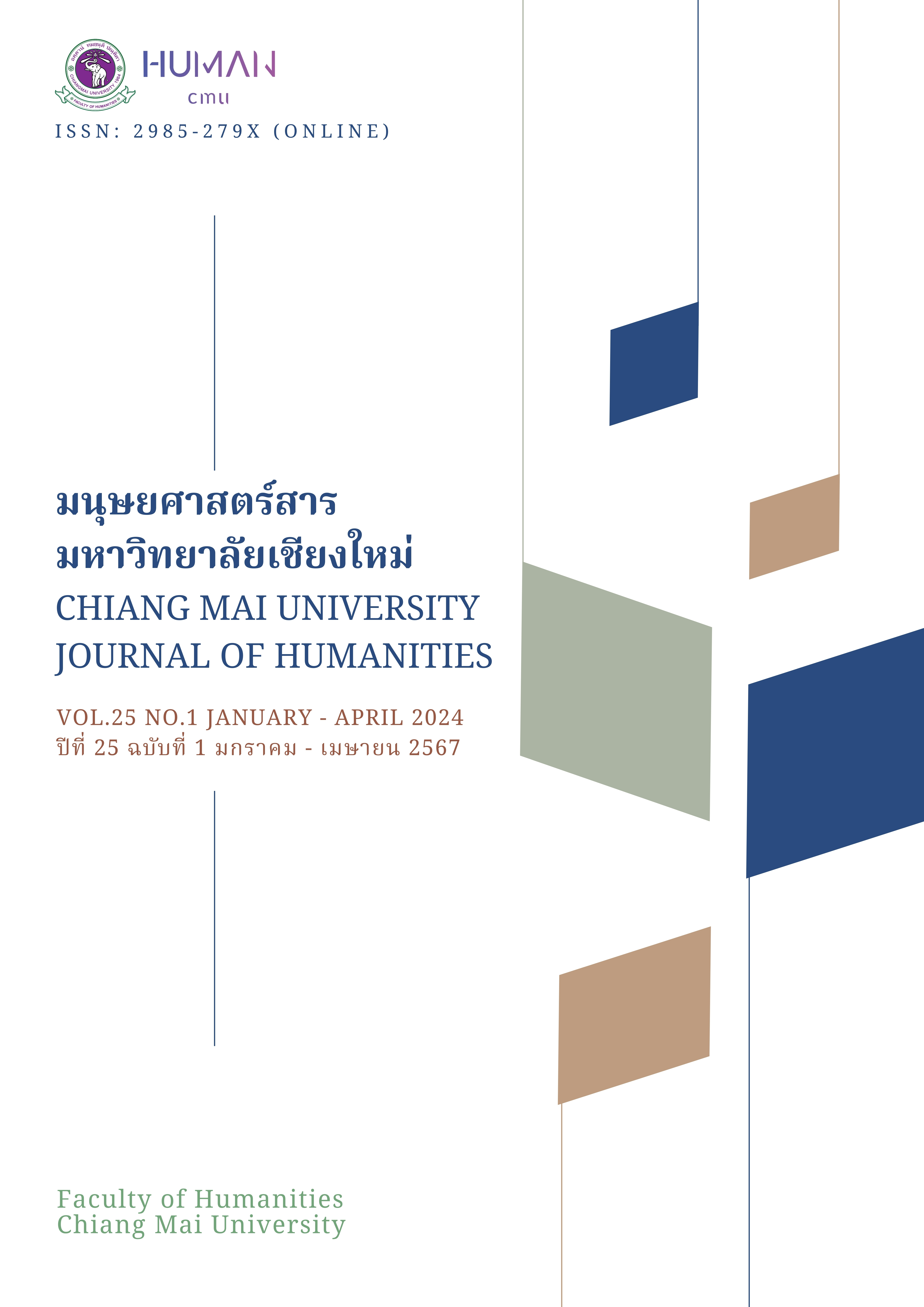สมรรถนะที่จำเป็นสำหรับบรรณารักษ์ห้องสมุดด้านการแพทย์ในประเทศไทย
Main Article Content
บทคัดย่อ
งานวิจัยนี้มีวัตถุประสงค์เพื่อศึกษาการให้ความสำคัญด้านสมรรถนะ ประกอบไปด้วย ความรู้ ทักษะ และคุณลักษณะส่วนบุคคลของบรรณารักษ์ห้องสมุดด้านการแพทย์ โดยใช้การวิจัยเชิงปริมาณรวบรวมข้อมูล ประชากรในการศึกษาครั้งนี้จึงได้แก่ ห้องสมุดทางด้านการแพทย์ในประเทศไทย จำนวน 94 แห่ง รวบรวมแบบสอบถามได้จำนวน 86 แห่ง (ร้อยละ 80.84) เครื่องมือที่ใช้ในการรวบรวมข้อมูลคือแบบสอบถาม สถิติที่ใช้ในการวิเคราะห์ข้อมูล ได้แก่ ค่าร้อยละ (Percentage) ค่าเฉลี่ย () และค่าความเบี่ยงเบนมาตรฐาน (Standard Deviation)
ผลการศึกษาความเห็นของบรรณารักษ์ห้องสมุดด้านการแพทย์ พบว่าในภาพรวมให้ความสำคัญกับสมรรถนะของบรรณารักษ์ด้านการแพทย์อยู่ในระดับมาก (=3.85) เมื่อพิจารณารายสมรรถนะพบว่า ทั้ง 4 กลุ่มให้ความสำคัญกับสมรรถนะทั้ง 3 ด้านในระดับมาก ซึ่งพบว่า ด้านคุณสมบัติส่วนบุคคลได้ค่าเฉลี่ยสูงสุด ระดับมาก (=4.33) รองลงมาคือ ด้านทักษะค่าเฉลี่ยระดับมาก (=3.83) และอันดับสาม คือ ด้านความรู้ ค่าเฉลี่ยระดับมาก (=3.62) เมื่อพิจารณาเป็นรายด้าน พบว่า
ด้านความรู้ ในภาพรวมค่าเฉลี่ยอยู่ในระดับมาก (=3.62) เมื่อพิจารณาภาพรวมรายด้านพบว่า ค่าเฉลี่ยอันดับแรก คือ ด้านทรัพยากรสารสนเทศ ค่าเฉลี่ยระดับมาก (=3.99) รองลงมาคือ ด้านงานเทคนิค ค่าเฉลี่ยระดับมาก (= 3.90) และอันดับถัดมาคือ ด้านการบริหาร การวางแผน และนโยบาย ค่าเฉลี่ยระดับมาก (=3.73)
ด้านทักษะ ในภาพรวมค่าเฉลี่ยอยู่ในระดับมาก (=3.83) เมื่อพิจารณาภาพรวมรายด้านพบว่า ค่าเฉลี่ยอันดับแรก คือ ด้านการสื่อสาร ค่าเฉลี่ยระดับมาก (=3.97) รองลงมาคือ ด้านคอมพิวเตอร์และเทคโนโลยี ค่าเฉลี่ยระดับมาก (= 3.90) และอันดับถัดมาคือ ด้านการเป็นภาวะผู้นำ ค่าเฉลี่ยระดับมาก (=3.88)
ด้านคุณลักษณะส่วนบุคคล ในภาพรวมค่าเฉลี่ยอยู่ในระดับมาก (=4.33) เมื่อพิจารณาภาพรวมรายด้านพบว่า ค่าเฉลี่ยอันดับแรก คือ ด้านความซื่อสัตย์ และการยึดมั่นในความถูกต้อง ค่าเฉลี่ยระดับมาก (=4.49) รองลงมาคือ ด้านทัศนคติเชิงบวก ค่าเฉลี่ยอยู่ในระดับมาก (=4.30) และอันดับถัดมาคือ ด้านการเปิดรับแนวคิดใหม่และความคิดเห็นของผู้อื่น ค่าเฉลี่ยอยู่ในระดับมาก (= 4.29)
Article Details

อนุญาตภายใต้เงื่อนไข Creative Commons Attribution-NonCommercial-NoDerivatives 4.0 International License.
เอกสารอ้างอิง
ขจรศักดิ์ ศิริมัย. (2554). เรื่องน่ารู้เกี่ยวกับสมรรถนะ. http://competency.rmutp.ac.th /wp-content/uploads/2011/01/aboutcompetency.pdf
จิรประภา อัครบวร. (2556, 22 พฤษภาคม). Competency คืออะไรกันแน่. http://www.pcc.kmitl.
ac.th/person/library/know/whatisCompetency.pdf.
ชัจจ์ชนันต์ ธรรมจินดา. (2553). การจัดการทรัพยากรมนุษย์ แผนกลยุทธ์การบริหารทรัพยากรมนุษย์และการนำแผนฯ ไปสู่การปฏิบัติ. สถาบันดำรงราชานุภาพ. http://www.stabundamrong.go.th/web/book/53/b15_53.PDF
ณรงค์วิทย์ แสนทอง. (2547). มารู้จัก Competency กันเถอะ. เอช อาร์ เซ็นเตอร์.
ทิพวรรณ สุขรวย. (2558). สมรรถนะของนักวิชาชีพสารสนเทศในการปฏิบัติงานบริการสนับสนุนการวิจัยในห้องสมุดมหาวิทยาลัยวิจัยไทย [วิทยานิพนธ์ปริญญามหาบัณฑิต, มหาวิทยาลัยเชียงใหม่]. CMUDC. https://cmudc.library.cmu.ac.th/frontend/Info/item/dc:122878
ทรงพันธ์ เจิมประยงค์. (2555). บริการสารสนเทศเพื่อสนับสนุนการแพทย์เชิงประจักษ์: กรณีศึกษาศูนย์การแพทย์มหาวิทยาลัยแวนเดอร์บิวท์. EAU HERITAG, 6(2), 10-19. https://he01.tci-thaijo.org/index.php/EAUHJSci/article/view/25715/21839
เทอดศักดิ์ ไม้เท้าทอง. (2557). บทบาทที่ปฏิบัติจริงและบทบาทที่คาดหวังของบรรณารักษ์ห้องสมุดโรงพยาบาลทั่วไปในการส่งเสริมการรู้สารสนเทศทางสุขภาพสำหรับผู้ให้บริการสุขภาพ [วิจัย, มหาวิทยาลัยศรันครินทรวิโรฒ]. SWU IR. https://ir.swu.ac.th/jspui/bitstream/123456789/3495/2/Therdsak_%20M_
R448311.pdf
บุษราภรณ์ อัครนิธิยานนท์. (2545). ความคิดเห็นและความคาดหวังของผู้บริหารและบรรณารักษ์ต่อความสามารถของบรรณารักษ์ห้องสมุดเฉพาะ [วิทยานิพนธ์ปริญญามหาบัณฑิต, จุฬาลงกรณ์มหาวิทยาลัย]. NRCT. https://dric.nrct.go.th/Search/SearchDetail/138596
ประภาพร พิมพ์พาศรีภิรมย์. (2563). การพัฒนาสมรรถนะบรรณารักษ์วิชาชีพตามมาตรฐานกำหนดตำแหน่งมหาวิทยาลัยราชภัฏด้วยกระบวนการจัดการความรู้ [วิทยานิพนธ์ปริญญาดุษฏีบัณฑิต, มหาวิทยาลัยราชภัฏมหาสารคาม]. ARIT RMU. http://fulltext.rmu.ac.th/fulltext/2563/M129736/Pimpasripirom
%20Prapaporm.pdf
พ้นพันธ์ ปิลกศิริ. (2556). ความคาดหวังของผู้บริหารห้องสมุดมหาวิทยาลัยต่อสมรรถนะเฉพาะตำแหน่งของบรรณารักษ์ [วิทยานิพนธ์ปริญญามหาบัณฑิต, จุฬาลงกรณ์มหาวิทยาลัย]. CHULAPEDIA. http://www.chulapedia.chula.ac.th/index.php?title=ความคาดหวังของผู้บริหารห้องสมุดมหาวิทยาลัยต่อสมรรถนะเฉพาะตำแหน่งของบรรณารักษ์&redirect=no
เรณุกา สันธิ. (2565). สมรรถนะการรู้ดิจิทัลสำหรับบรรณารักษ์ห้องสมุดมหาวิทยาลัยวิจัยไทย [วิทยานิพนธ์มหาบัณฑิต]. มหาวิทยาลัยเชียงใหม่.
สุพาภรณ์ ทาจิตต์. (8-9, มกราคม, 2563). การพัฒนาสมรรถนะสำหรับบรรณารักษ์ในศตวรรษที่ 21 : กรณีศึกษามหาวิทยาลัยอุบลราชธานี. ใน การประชุมวิชาการระดับชาติ PULINET ครั้งที่ 10 : Library Transformation in a Disrupted World, สำนักหอสมุด มหาวิทยาลัยทักษิณ.
สุรัสวดี ดิษฐสกุล. (2556). ทางรอดของห้องสมุดทางการแพทย์: บรรณารักษ์และสมรรถนะที่คาดหวังกับบทบาทใหม่ที่สร้างมูลค่าเพิ่มแก่วิชาชีพ. วารสารห้องสมุด, 57(2), 7-19. https://so06.tci-thaijo.org/index.php/tla_bulletin/article/view/134513
สมรักษ์ สหพงศ์. (2551). บทบาทและความรู้ความสามารถของนักสารสนเทศทางการแพทย์ ในกระบวนการเวชปฏิบัติเชิงประจักษ์ [วิทยานิพนธ์ปริญญาดุษฎีบัณฑิต, มหาวิทยาลัยขอนแก่น]. NRCT. https://dric.nrct.go.th/Search/SearchDetail/236477
สำนักงานบริหารโครงการร่วมผลิตแพทย์เพิ่มเพื่อชาวชนบท. (ม.ป.ป.). ศูนย์แพทยศาสตรศึกษาชั้นคลินิกทั่วประเทศ. CPIRD ADMIN. https://sites.google.com/cpird.in.th/appcpird/home
สำนักงานปลัดกระทรวงสาธารณสุข. (2535). แนวทางปฏิบัติงานโรงrยาบาลศูนย์และโรงพยาบาลทั่วไป. สำนักงานปลัดกระทรวงสาธารณสุข.
สำนักงานปลัดกระทรวงสาธารณสุข. (2560, 31 มกราคม). ข้อมูลพื้นฐานโรงพยาบาลของรัฐสังกัดกระทรวงสาธารณสุขปีงบประมาณ 2558 ณ มกราคม 2560. กองบริหารการสาธารณสุข. https://phdb.moph.go.th/main/index/downloadlist/57/0
Abotalebi, P., & Biglu, M. H. (2017). Identification of Competencies for Professional Staff of Academic Medical Libraries in Iran. Scientific Research, 4(6), 1-13. https://www.scirp.org
/pdf/OALibJ_2017060614502991.pdf
ALIA. (2018). HLA Competencies 2018. https://read.alia.org.au/alia-hla-competencies
Boyatzis, R. E. (1982). The competent manager: A model for effective performance. John Wiley & Sons.
Canadian Association of Research Libraries. (2010). Core competencies for 21st century CARL librarians. https://www.carl-abrc.ca/doc/core_comp_profile-e.pdf.
Cooper, I. D., & Crum, J. A. (2013). New activities and changing roles of health sciences librarians: a systematic review, 1990–2012. Journal of the Medical Library Association: JMLA, 101(4), 268-277. https://www.ncbi.nlm.nih.gov/pmc/articles/PMC3794682/
Hoffmann, T. (1999). The meanings of competency. Journal of european industrial training, 23(6), 275-285.
McClelland, D.C. (1973). Testing for Competence rather than Intelligence. American Psychologist, 28(1), 1-14.
Medical Library Association. (2007). Professional Competencies. https://www.mlanet.org/page/competencies.
Medical Library Association. (2017). Medical Library Association Competencies for Lifelong Learning and Professional Success 2017. https://www.mlanet.org/p/cm/ld/fid=1217?fbclid=IwAR1SWKn9HPyY4dK4mbv3cJ6t5sW-QVHAEZx7Tr-AMFKifLXNCkX8i61_jJw
Miura, T. (2019). The Japan Library Association. INTERNATIONAL JOURNAL OF LIBRARIANSHIP, 4(2), 123-128.
Parry, S. B. (1996). The Quest for Competencies. Training, 33(7), 48-54.
Ullah, M., Ameen, K., & Bakhtar, S. (2011). Professional activities, needed competencies and training needs of medical librarians in Pakistan. Education for Information, 28(2-4), 115-123.
Ullah, M., & Anwar, M. A. (2013). Developing competencies for medical librarians in Pakistan. Health Information & Libraries Journal, 30(1), 59-71.
Woodruffe, C. (1993). What is meant by a competency?. Leadership & organization development journal, 14(1), 29-36.


